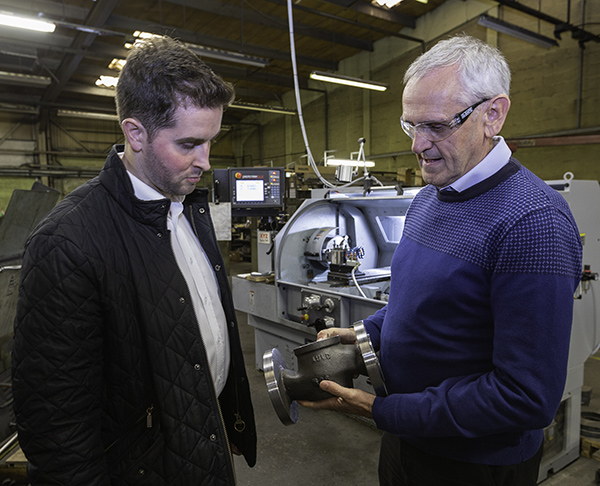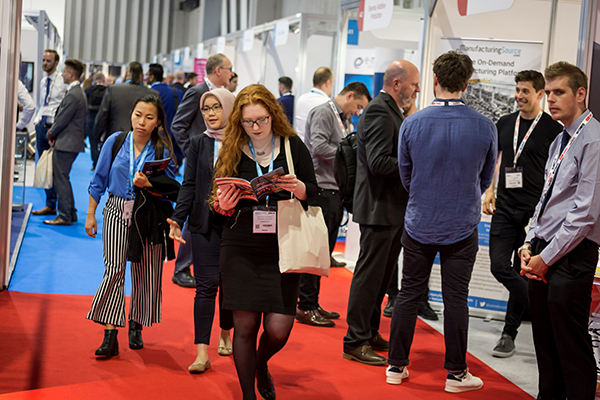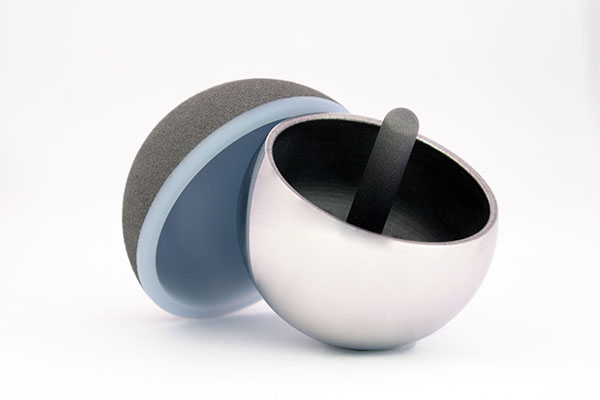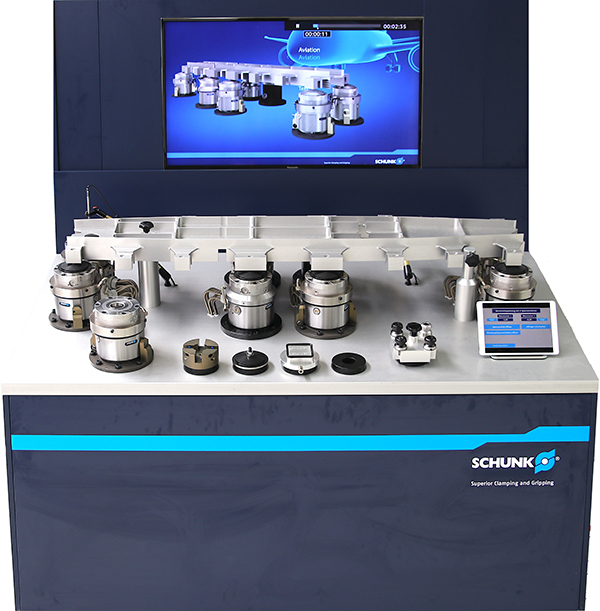Jointmedica Ltd, based in Worcestershire, produces Class 3 implants in the orthopaedic sector and has, in its product portfolio, an innovative mobile bearing knee replacement, as well as development activities relating to hip resurfacing and the manufacture of custom-made devices for specific patients created directly from CT scans.

High-level development activities can now be undertaken in-house at Jointmedica’s facility in Hallow, utilising Alphacam software. As well as allowing the company to take advantage of the intellectual property available via the company’s founder, Professor Derek McMinn, Alphacam assists the design team to further explore these innovative new designs and incorporate new materials, driving the advancement of orthopaedic hip and knee replacement surgery. As a result, exacting controls and the highest quality, are paramount.

Technical director Roger Ashton says: “If we consider the hip resurfacing market in isolation, several years after the procedure began, a small number of patients suffered physiological problems due to hypersensitivity to various metals. The end result was that a small percentage had bearing-related failures. This led to a sharp decline in the use of metal-on-metal articulations in the resurfacing context. It is Jointmedica’s purpose to work with alternative bearing materials, such as ultra-high molecular weight polyethylene, using the successful resurfacing methodology to generate a product that will re-establish the hip resurfacing market. In terms of our surgeon team, we are privileged in being associated with the most experienced hip resurfacing designers and surgical innovators in the world.”
When the company brought its manufacturing research and development in-house, the need for investing in a suitable machine and CADCAM software became apparent.
Ashton says: “It was clear we were going to have an interesting combination of 2D turned profiles and surface machining with milling, drilling and slotting, and we were conscious that we had a lot of complex geometries with which to contend. As a result, we needed a CNC machine tool and software that could manage all of our milling and turning requirements, including in sometimes more than three axes.”
He says that the company’s Brother Speedio M140x2 five-axis CNC machining centre fit the bill perfectly: “Many products require a combination of three-axis and four-axis machining, plus turning operations, so Alphacam will always be an integral part of our manufacturing process from now on.”
Generating custom implants at Jointmedica begins the moment the patient’s CT scan is received, which allows the company to start modelling the bespoke product. Jointmedica uses two CAD systems to design the solid models, mainly Creo and, occasionally, SolidWorks. The files are usually sent in XT, STEP or DXF format for the turning cycle in the lathe software.

Jointmedica uses Alphacam Ultimate Mill and Standard Lathe to machine the finished product, with the Brother machining centre capable of performing both turning and milling operations.
Oliver Clayton, manufacturing engineer at Jointmedica, says: “I take Alphacam’s 3+2 system and incorporate it into some of the bespoke custom devices, and then an easier three-axis and turning program definition on the cutting paths for a simpler, axisymmetric product. In the turning program I mainly use the CAD side in drawing the geometry and applying the tool path. That’s extremely useful because I can incorporate not only the model, but draw my own tool paths in there with the geometry.”
As an example, the materials for a ball and socket type bearing, which work well when implanted in the body as a hip replacement, can include ultra-high molecular weight polyethylene of differing formulas, and a counter face of cobalt chrome, ceramic or other material.
“Through accurate machining driven by Alphacam, material wastage is kept to a minimum, and we can also ensure the final, bespoke product is suitable for the patient,” says Clayton, who adds that it is of utmost importance that the implants are of the highest precision.
“When we come to CMM measurements they must be dimensionally correct, and Alphacam ensures we get the right results every time. When considering our prototyping expectations, we are comfortably achieving the industry standard tolerances, and a bearing surface finish of 0.8 Ra for one-offs. We know that future production capability will significantly exceed these figures, and we’re confident in the solution afforded by the Brother CNC driven by Alphacam.
“Due to Alphacam’s accuracy, I can be totally confident that the software guarantees the product will be right first time, every time,” he continues.
For Jointmedica, a particular challenge facing the manufacturing process was manipulating the tool path to get the quickest machining time for a particular component. Here, Alphacam’s ability to define the best cutting tools and tool paths allows these to be manipulated to set the quickest timescale with the best path for the device to be manufactured accurately.

Clayton concludes: “When I refer to accuracy, I don’t just mean the speed and accuracy of a geometric tool path I put over a CAD model that’s come into Alphacam; I mean combining a number of different types of operations – the accuracy and ease of Alphacam coming in and picking up at a point that I’ve designated on the software, at a later stage on the product with an alternative type of machining method. It picks up accurately, as verified with our CMM equipment, and it is always within the specified critical dimensions. This is a huge benefit.”
For further information www.alphacam.com

























